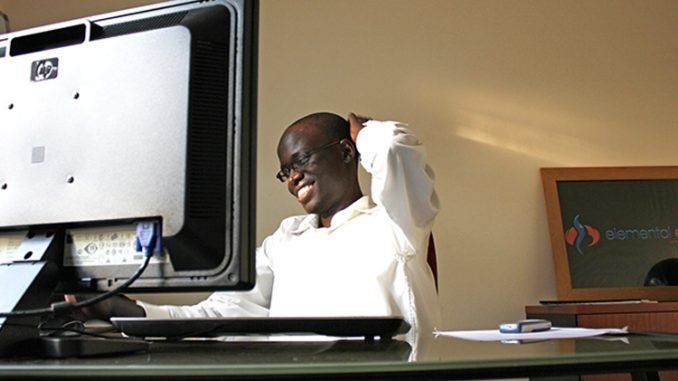
On 23rd July 2009, the SEACOM fiber-optic cable went live, and the Ugandan Internet landscape changed for good. I blogged about it, questioning the advent of broadband in Uganda had truly come. My conclusion was “No, not yet.” Back then, I argued that while we now had very fast speeds, those speeds hadn’t yet filtered down to the end user, Ms. Average Ugandan Citizen and that we would need more time to truly benefit from this new reality. We were still waiting for the telecoms to bring that speed (and corresponding price drop) to the last mile.
Now the time has come, and it is here to stay. Over the past year, we have seen an impressive reduction in Internet pricing and an even more impressive increase in speeds. Leading the pack, of course, is Orange, which in my humble opinion has single-handedly proven that the Average Joe can get fast, stable Internet access in their bedroom.
But an even newer reality has hit us. One that is so subtle and so ethereal that you would miss it if you weren’t looking for it. Technology has become more democratic, and it owes a huge chunk of this success to the evolution of Internet in the country.
The thing about democracy is this: once you give people the power and choice to make informed decisions and to enact their decisions in a public forum in a way, those decisions impact the status quo for the better.
Ten years ago, when I logged onto the Internet for the first time, it was a privilege that I had earned by being an employee of an Internet café. It was a privilege that the café’s clients earned by paying top dollar to get a few minutes of access to this wonderful new world of infinite possibilities. But—and here’s the catch—the possibilities were not infinite. They were limited by money, time, and excruciatingly low speeds.
Where I worked, you paid 150 shillings per minute to get onto the Internet. That is 9,000 shillings per hour. The connection was painfully slow by today’s standards, and yet the café had the fastest connection in town. In order to get anything meaningful done, you needed at least 2 hours online, which was about 18,000 shillings.
This was too expensive for the Average Joe, so most people dropped in for 20 minutes max just to check email and leave.
For budding technologists like myself, those prices and speeds were even more excruciating. We technologists like to learn, we like to explore, we like to talk to people and discover new ideas. We want people to look at our work and critique it, for better or worse. We continuously search for and demand new paradigms in thinking everyday. The Internet promised us the ability to achieve this in ways we had previously never dreamed possible. Unfortunately, the early Internet was a dictatorship that catered only to the wealthy, the fortunate, and the technically superior. It was like being given a Ferrari as a present and being told you can only drive it at 10km per hour, only at lunch-time, once a month.
Fast forward to today and we’re in a world where 25,000 shillings gives you daily Internet access for an entire month, with unbelievable speeds. Spending 85,000 shillings gives you access to pretty much anything you want on the Internet. But more importantly, you get instantaneous access to information, communities and networks where you can learn, grow and experiment on a scale you’ve never experienced before.
And the results are showing, we have incredible levels of innovation from almost all technology sectors like hardware, computing, mobile, web and software applications. And because getting online is now cheaper and faster, this innovation is coming not from the wealthy or elite but from the average person. On the technical side, the innovators are students in their dorm rooms, college dropouts and from the previously un-wealthy and under-privileged. End users from all walks of life are harnessing the power of the Internet through social platforms like Facebook and LinkedIn, and doing things that were previously “complicated and geeky” like blogging and tweeting.
This is a dream come true, because night or day, at home or in Centenary Park, we’re online, hooked up to the Internet, experiencing this new democracy, freely, instantaneously and affordably.
Yes, there are still limitations, like data limits, and it’s still very far from an Internet addict’s utopia—in Finland super fast broadband is considered a human right—but I can assure you, this democracy is taking shifting into gear, and I don’t know about you, but I want a front row seat.
Solomon King is a blogger and the CEO of NodeSix.



